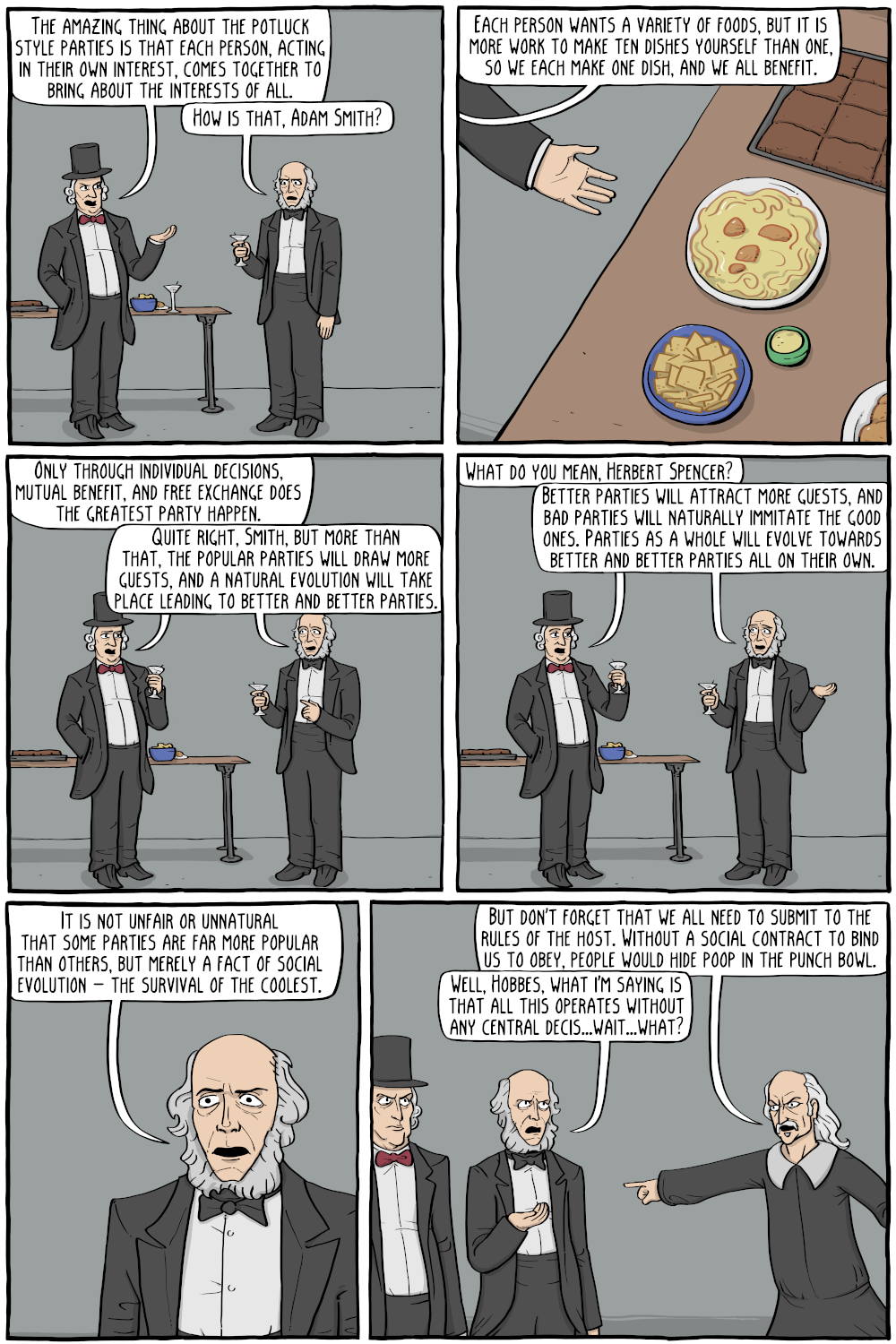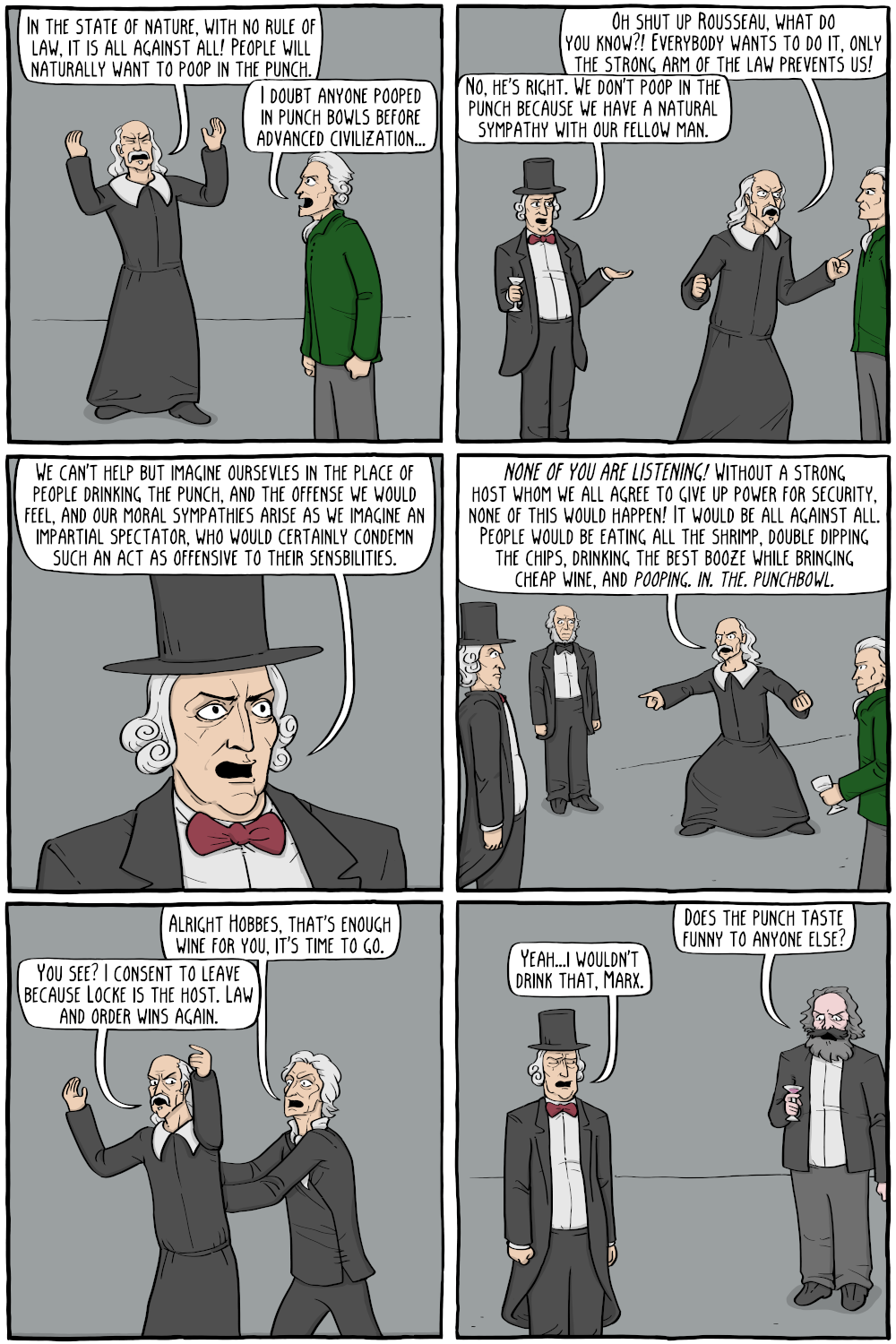

Early capitalist theorists like Adam Smith and Herbert Spencer believe that under free market systems, individuals would pursue their own selfish needs, but through market exchange and competition, society as a whole would benefit. Adam Smith, being an economist, focused on how trade and competition would set prices in a way that reflected the value of the work put into producing goods, and the society's desire for any given good. For example, if society was producing too much wheat, and not enough sugar, a capitalist would notice that with the same amount of labor he could switch to growing sugar and make more money, because the price of sugar would be higher relative to how much you could produce with the same amount of work. Through the selfish desire to make more money, labor would be allocated in a way that would correctly reflect what a society's wants and needs were. Herbert Spencer was more of a sociologist, and focused on how competing firms would either die out or prosper based on how good they were good they were at what they were doing. So for two competing sugar farms, if one was inefficient, lazy, or incompetent, and the other was well run, the incompetent one wouldn't be able to survive in a market economy and would close down. He saw this as a good thing, because then society as a whole would evolve in a similar way to organisms over time, towards better and better practices, due to the free market "killing off" weaker, more poorly managed companies. He coined the term "survival of the fittest", and thought a free market system was what would improve society in this way.
Thomas Hobbes is best known for his social contract theory, where he argued that we must submit to the rule of law (even to a monarch) in order to prevent an "all against all" society, essentially giving up some degree of freedom for the security of living in a society. People like Rousseau argued that before advanced civilization people lived in relative peace because we are naturally cooperative, and Adam Smith thought that our natural moral sentiments, which are grounded in the discomfort we would feel in knowing a neutral third party observer would disapprove of our bad actions, is what keeps people behaving justly.
Permanent Link to this Comic: https://existentialcomics.com/comic/280
Support the comic on Patreon!










